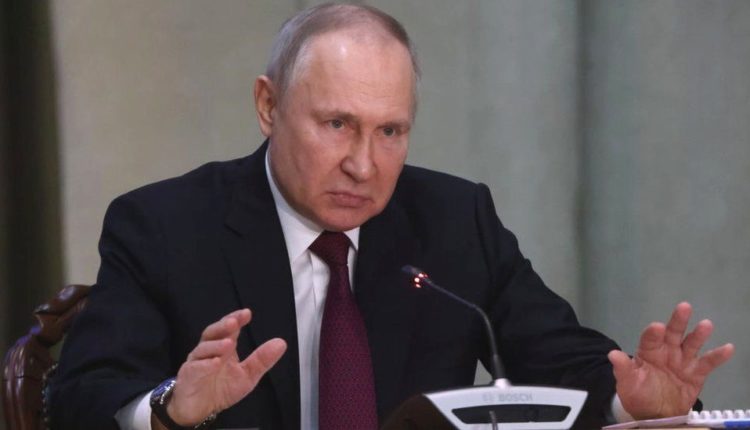President Vladimir Putin now rules Russia virtually unchallenged. Many of the critical voices that once spoke out have since been forced into exile, while other opponents have been jailed – or in some cases killed.
By the time he launched his full-scale invasion of Ukraine in February 2022, more than two decades of stamping out dissent had all but annihilated opposition in Russia.
At the very start of President Putin’s rule, he brought to heel Russia’s powerful oligarchs – immensely rich people with political ambitions.
Mikhail Khodorkovsky, once head of the Russian oil giant Yukos, was arrested in 2003 and spent 10 years in prison for tax evasion and theft after funding opposition parties. Upon his release, he left Russia.
Boris Berezovsky, another oligarch who even helped bring Putin to power – fell out with him later and died in exile in the UK in 2013, reportedly by suicide.
All key media in Russia gradually fell under the control of the state or toed the official Kremlin line.
Alexei Navalny
By far the most prominent opposition figure in Russia is now Alexei Navalny, who has accused Putin from jail of aiming to smear hundreds of thousands of people in his “criminal, aggressive” war.
In August 2020, Navalny was poisoned with Novichok, a military-grade nerve agent, while on a trip to Siberia. The attack nearly killed him, and he had to be flown to Germany for treatment.
His return to Russia in January 2021 briefly galvanised opposition protesters, but he was immediately arrested for fraud and contempt of court. He is now serving nine years in prison, and was the focus of an Oscar-winning documentary.
In the 2010s Navalny was actively involved in mass anti-government rallies and the many exposes by Navalny’s main political vehicle, the Anti-Corruption Foundation (FBK), have attracted millions of views online. In 2021 the foundation was outlawed as extremist and Navalny has repeatedly dismissed allegations of corruption as politically motivated.
Many of his associates have come under pressure from security services, and some have fled abroad, including former FBK head Ivan Zhdanov, former top FBK lawyer Lyubov Sobol and most, if not all, of the heads of the extended network of Navalny’s offices across Russia.
Navalny’s right-hand man Leonid Volkov left Russia when a money laundering case was launched against him in 2019.
Opposition to the war
Another key Putin critic behind Russian bars is Ilya Yashin, who has been sharply critical of Russia’s war. In a live stream on YouTube in April 2022, he urged an investigation into possible war crimes committed by Russian forces and called President Putin “the worst butcher in this war”.
That live stream led to eight-and-a-half years in jail for violating a law against spreading “deliberately false information” about the Russian army. The law was rushed through parliament shortly after Russia invaded Ukraine on 24 February 2022.
Yashin became involved in politics in 2000 at the age of 17, the year Putin came to power.
In 2017, after years of opposition activism, he was elected head of the Krasnoselsky district council in Moscow, where he continued to voice views critical of the Kremlin.
In 2019, he spent more than a month behind bars for his active role in protests against the authorities’ refusal to register independent and opposition-minded candidates for elections to the Moscow city council.
Cambridge-educated journalist and activist Vladimir Kara-Murza has twice been the victim of a mysterious poisoning that left him in a coma, in 2015 and then in 2017. He was arrested in April 2022 following his criticism of the Russian invasion of Ukraine, and charged with sharing “fake news” about the Russian military, organising the activities of an “undesirable organisation” and high treason. His lawyer says he is facing up to 25 years in prison if convicted.
He has authored numerous articles critical of Putin in prominent Russian and Western media and in 2011 led opposition efforts to secure the adoption of Western sanctions targeting human rights abusers in Russia.
These sanctions imposed by many Western countries are known as Magnitsky acts after whistleblowing lawyer Sergei Magnitsky, who died in a Russian jail in 2009 after alleging fraud by officials.
Source: BBC


Comments are closed.